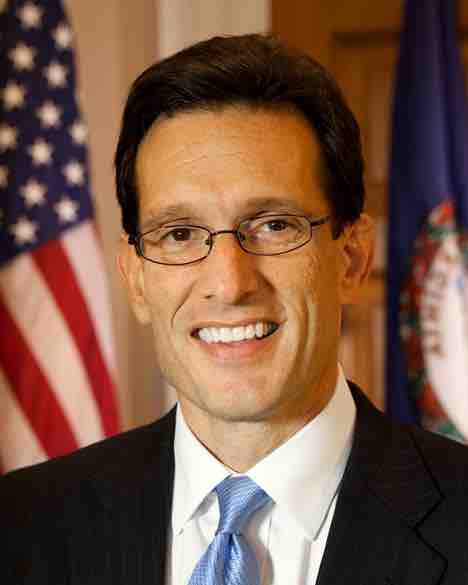Party leaders and whips of the United States House of Representatives are elected by their respective parties in a closed-door caucus by secret ballot. The party leaders are also known as floor leaders. The U.S. House of Representatives does not officially use the term "Minority Leader" although the media frequently does. Instead, the House uses the terms "Republican Leader" or "Democratic Leader" depending on which party holds a minority of seats.
The current House Majority Leader is Republican Kevin McCarthy, while the current House Minority Leader is Democrat Nancy Pelosi. The current House Majority Whip is Republican Steve Scales, while the current House Minority Whip is Democrat Steny Hoyer. The Majority Leader's duties and prominence varies depending upon the style of the Speaker of the House and the political climate within the majority caucus.

Majority Leader for the House of Representatives
Majority Leader Kevin McCarthy.
The Speaker of the House and the Majority Leader
The House Majority Leader's duties and prominence vary depending upon the style and power of the Speaker of the House. Typically, the Speaker does not participate in debate and rarely votes on the floor. In some cases, Majority Leaders have been more influential than the Speaker, notably Tom DeLay who was more prominent than Speaker Dennis Hastert. In addition, Speaker Newt Gingrich delegated to Dick Armey an unprecedented level of authority over scheduling legislation on the House floor. As presiding office of the House of Representatives, the Speaker holds a variety of powers over the House but usually delegates them to another member of the majority party.
The Speaker in the United States, by tradition, is the head of the majority party in the House of Representatives, outranking the Majority Leader. However, despite having the right to vote, the Speaker usually does not participate in debate and rarely votes. The Speaker is responsible for ensuring that the House passes legislation supported by the majority party. In pursuing this goal, the Speaker may use his or her power to determine when each bill reaches the floor. They also chair the majority party's steering committee in the House. While the Speaker is the functioning head of the House majority party, the same is not true of the President pro tempore of the Senate, whose office is primarily ceremonial and honorary. The Speaker may designate any member of the House to act as Speaker pro tempore and preside over the House. During important debates, the Speaker pro tempore is ordinarily a senior member of the majority party who may be chosen for his or her skill in presiding. At other times, more junior members may be assigned to preside to give them experience with the rules and procedures of the House. The Speaker may also designate a Speaker pro tempore for special purposes, such as designating a Representative whose district is near Washington, DC to sign enrolled bills during long recesses.
The Minority Leader
The Minority Leader of the House serves as floor leader of the opposition party and is the counterpart to the Majority Leader. Unlike the Majority Leader, the Minority Leader is on the ballot for Speaker of the House when Congress convenes. If the Minority Leader's party takes control of the House and the party officers are all re-elected to their seats, the Minority Leader is usually the party's top choice for Speaker for the next Congress, while the Minority Whip is typically in line to become Majority Leader. The Minority Leader usually meets with the Majority Leader and the Speaker to discuss agreements on controversial issues.
The floor leaders and whips of each party are elected by their respective parties in a closed-door caucus by secret ballot. The Speaker-elect is also chosen in a closed-door session although they are formally installed in their position by a public vote when Congress reconvenes.